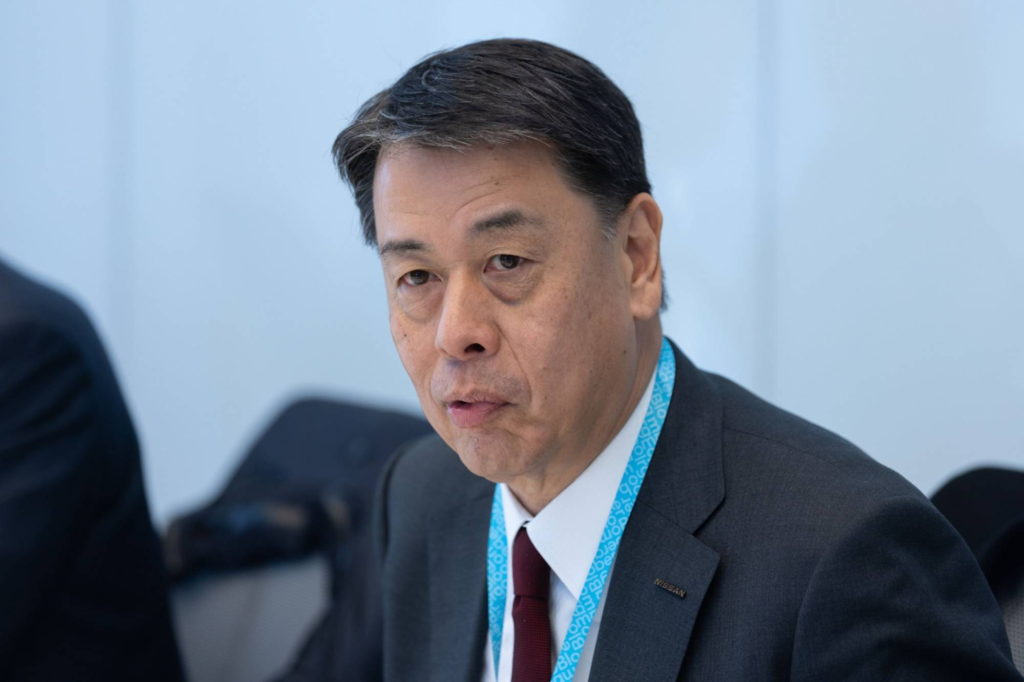Nissan Motor Co. has announced a major restructuring plan involving significant workforce reductions and production cuts, aimed at stabilizing the automaker’s operations in the wake of disappointing sales figures, particularly in China and the United States.
This strategy includes laying off 9,000 employees globally, scaling back production capacity by 20%, and implementing cost-saving measures to the tune of USD 2.6 billion. The move highlights the increasing challenges Nissan faces as it strives to keep pace with technological advancements in the electric vehicle (EV) market and adapt to shifting consumer preferences.
The Impact of Weak Sales in China and the U.S.
China and the U.S., two of the world’s largest automotive markets, have presented unprecedented challenges for Nissan, impacting its bottom line and prompting the company to slash its annual profit forecast by a staggering 70%.
The automotive landscape in China, once a promising market for global automakers, has been transformed by the rapid rise of local manufacturers such as BYD. These companies have captured a significant market share by offering affordable and technologically advanced EVs and hybrid models, pushing global giants like Nissan to the sidelines.
Nissan’s sales decline in China, compounded by aggressive pricing competition and evolving consumer demand, highlights the difficulty of staying competitive in a rapidly changing market.
Read : Japan’s Iconic Mount Fuji Snowless in October for the First Time
Meanwhile, Nissan’s struggle to establish a strong foothold in the U.S. hybrid market has left it vulnerable in a sector that has seen remarkable growth. Competitors like Toyota, which invested early in hybrid technology, are now reaping the benefits as American consumers increasingly favor hybrid models.
Read : Top Exports in Asian Countries: A Closer Look at the Economic Powerhouses
Nissan’s CEO, Makoto Uchida, acknowledged the company’s delayed response to this trend, admitting that they underestimated the potential of hybrids and now face an uphill battle to close the gap with more hybrid-oriented competitors.
This lag in hybrid adoption has underscored the limitations of Nissan’s current vehicle lineup, prompting the company to recalibrate its approach and accelerate its focus on electrification and sustainability.
Restructuring Measures and Workforce Reductions
In light of these setbacks, Nissan has undertaken a comprehensive restructuring plan to address its operational inefficiencies and reduce costs. Central to this strategy is the reduction of its global workforce by 9,000 employees, which accounts for approximately 6.7% of its total workforce.
This decision is not only a cost-saving measure but also a necessary step toward realigning the company’s production capacity with current market demand. The company has announced it will reduce its manufacturing footprint by 20%, thereby streamlining its operations and focusing on core markets and products.

Alongside these workforce cuts, Nissan is also targeting a reduction in its production timelines, aiming to shorten vehicle development to 30 months. This acceleration is intended to bring new models to market faster, allowing the company to better respond to evolving customer preferences and technological advancements.
Nissan’s management team, led by CEO Uchida, has shown a commitment to navigating this challenging period by voluntarily reducing their own salaries, with Uchida himself taking a 50% pay cut as a gesture of accountability and solidarity with the workforce.
These restructuring efforts are expected to generate significant cost savings, allowing Nissan to reinvest in areas critical to its future competitiveness, such as EV technology and sustainable transportation solutions.
Embracing Partnerships and a New Strategic Direction
In response to intensifying competition and shifting industry dynamics, Nissan plans to deepen its collaborative efforts with longstanding partners Renault and Mitsubishi Motors. The alliance, which has faced scrutiny and challenges since the departure of former CEO Carlos Ghosn, is now positioned as a key pillar in Nissan’s recovery strategy.
By leveraging the strengths of each partner, the company hopes to enhance operational efficiencies, share technological innovations, and streamline supply chains. This cooperative approach is expected to reduce duplication and drive cost efficiencies across the board, ultimately strengthening Nissan’s position in the global automotive market.
Furthermore, Nissan’s strategic pivot includes an intensified focus on electrification. Recognizing the growing demand for sustainable and environmentally friendly vehicles, the company aims to expand its EV portfolio and invest in hybrid technologies to meet consumer expectations in major markets.
This shift aligns with broader industry trends as governments worldwide implement stricter emission regulations and promote the adoption of clean energy vehicles.
Nissan’s renewed commitment to innovation and partnership positions it to better compete with both established automakers and emerging EV companies, thereby paving the way for a more sustainable and resilient future.
Nissan’s recent decisions to cut 9,000 jobs and reduce global production capacity represent a significant and sobering response to the challenges it faces in today’s competitive automotive landscape.
The combination of rising competition in China’s EV market, the delayed response to hybrid demand in the U.S., and internal challenges following corporate upheaval has underscored the need for decisive action.
By implementing cost-saving measures, embracing partnerships, and focusing on a more sustainable product lineup, Nissan is taking concrete steps to navigate its current challenges and lay the groundwork for future success.
While the path forward may be difficult, Nissan’s commitment to innovation and restructuring provides a hopeful outlook as it seeks to regain its footing in a rapidly evolving industry.

